The conversation around artificial intelligence has shifted from what technology can do to what technology should do.
While headlines celebrate breakthrough models and revolutionary capabilities, a more nuanced dialogue unfolds among those actually building these systems. Researchers, entrepreneurs, educators, and ethicists are grappling with questions that extend far beyond code optimization and performance metrics. They’re asking who AI serves, what values it embodies, and what consequences it creates in the real world. For UX designers navigating this landscape, understanding these perspectives isn’t optional anymore. It’s foundational to creating technology that genuinely serves humanity.
The Humans & AI Show, presented by the AI Frontier Network, captures this complexity through conversations with leaders who approach artificial intelligence without hype but with grounded reflection. Across discussions spanning education, workplace transformation, trust systems, and automation, five distinct voices emerge with insights that every designer should understand. These perspectives reveal that AI isn’t merely a technical challenge. It’s also a cultural one, demanding conscience alongside capability.
The Trust Architect: Building Systems That Explain Themselves
Trust in artificial intelligence doesn’t emerge automatically from accuracy or sophistication. It comes from systems designed with accountability, accessibility, and transparency built into their foundation from the start.
Andrew Kurtzig emphasizes that trustworthy AI requires embedded checkpoints, fallback mechanisms, and what he calls radical accessibility. This perspective challenges the common assumption that AI systems can operate as black boxes as long as they produce good results. In reality, when systems make decisions affecting people’s lives, those systems must be able to explain themselves clearly.
The future Kurtzig envisions centers on partnership rather than replacement. Artificial intelligence can scale intelligence across vast amounts of data and countless scenarios. Human judgment provides the necessary context and compassion that data alone cannot capture. This partnership model has profound implications for UX design. We’re not simply creating interfaces for AI outputs. We’re designing systems that facilitate meaningful human-AI collaboration.
Radical accessibility extends beyond making interfaces usable. It means ensuring that understanding how AI systems work isn’t limited to technical specialists. When healthcare professionals need to understand why an algorithm recommended a particular diagnosis, when loan officers need to explain why an application was denied, when users need to challenge decisions affecting their lives, the system must provide clear, comprehensible explanations.
The lesson for designers is straightforward but demanding: trustworthy AI is a design requirement, not an afterthought. This matters critically as artificial intelligence expands into healthcare, law, customer support, and other domains where decisions carry significant consequences. You wouldn’t let an AI diagnose your child without a doctor involved, so why let it make decisions about your customers or your future without oversight?
The Culture Builder: Embedding Responsibility Into Organizations
Phil Tomlinson, serving as SVP at TaskUs, argues that responsibility must be embedded in organizational culture rather than bolted on after systems are already built. His advocacy for human-centered AI emphasizes technology that remains transparent, interpretable, and emotionally safe throughout its lifecycle.
This perspective recognizes a fundamental truth: ethical AI doesn’t emerge from good intentions or compliance checklists. It emerges from organizational cultures that prioritize human wellbeing at every stage of development. The human experience isn’t a data point. It’s the whole point.
Creating genuinely human-centered AI requires multidisciplinary teams that extend well beyond engineers and data scientists. Ethicists bring frameworks for evaluating moral implications. Educators contribute insights about how people learn and understand complex systems. Mental health experts help teams consider emotional impacts and psychological safety. These diverse perspectives, working together, create more thoughtful and responsible technology.
For UX designers, this means actively advocating for broader team composition. When product teams consist only of technical specialists, they inevitably overlook dimensions of human experience that fall outside their expertise. Design itself becomes more ethical and effective when informed by multiple disciplines working in genuine collaboration rather than sequential handoffs.
The cultural approach also addresses a common failure mode in technology organizations. Many companies develop ethics guidelines or principles, post them prominently, then continue building products exactly as they did before. Embedding responsibility into culture means those values actually shape daily decisions, technical architectures, and product roadmaps. It means having difficult conversations about tradeoffs and being willing to slow down or change direction when ethical concerns emerge.
The Values Mentor: Shaping the Next Generation of Builders
Adnan Masood brings multiple perspectives as machine learning architect, mentor, and ethicist. His focus extends beyond current systems to the values being transmitted to the next generation of AI builders. Technical proficiency alone isn’t sufficient for those who will shape AI’s future trajectory.
Masood’s core message challenges the industry: we don’t need more coders, we need more conscious creators. Developers must inherit values of responsibility, fairness, and inclusivity alongside their technical skills. This inheritance happens through education, mentoring, and community engagement, making these activities as critical as scalability and performance optimization.
This perspective matters enormously for the field’s future. Every technical choice embeds values, whether intentionally or accidentally. When developers understand this deeply, they approach their work differently. They ask questions beyond “can we build this?” to include “should we build this?” and “who might this harm?”
For UX designers working with AI, understanding this educational dimension helps shape better collaboration with engineering teams. Rather than treating ethical considerations as constraints imposed by external stakeholders, teams can recognize them as fundamental to good craftsmanship. The best AI systems reflect both technical excellence and ethical thoughtfulness.
Education and community engagement create ripple effects that extend far beyond individual projects. When organizations prioritize mentoring, they shape not just their own products but the broader industry’s approach to responsible development. When universities integrate ethics deeply into technical curricula, they produce graduates who naturally consider human impact alongside system performance.
The lesson is clear: the future of AI depends on the values we transmit to its builders. This matters for everyone involved in AI development, from educators shaping curricula to policymakers establishing standards to organizational leaders defining culture.
The Automation Visionary: Designing Technology That Empowers
Fabian Veit offers a contrasting vision of automation’s role in our future. Rather than accepting that automation inevitably erodes meaning and displaces human purpose, he envisions automation that empowers people, frees time for meaningful work, and unlocks creativity.
This perspective acknowledges a genuine concern about AI’s impact on work and human agency. Poorly designed automation can quietly strip away the aspects of work that provide satisfaction and purpose while leaving tedious tasks intact. It can create dependency rather than capability, diminishing rather than enhancing human potential.
The alternative Veit proposes centers on intentional design that prioritizes human flourishing. Automation should handle genuinely tedious tasks that consume time without contributing meaning, freeing people for work that requires creativity, judgment, and human connection. This approach requires designers to deeply understand not just task completion but the human experience of work itself.
For UX designers, this raises crucial questions about every AI feature we create. Does this automation enhance human capability or replace it? Does it free people for more meaningful work or simply speed up existing processes? Does it help users develop expertise or create dependency on systems they don’t understand?
The distinction matters because automation’s impact depends entirely on design choices. A system that automates report generation while helping users understand the data and develop analytical skills has completely different effects than one that simply produces outputs users accept without comprehension. The first empowers, the second diminishes.
This perspective proves central to understanding AI’s impact on labor and the future of work. As designers, we significantly influence whether automation enhances or erodes human capability, whether it creates opportunities or eliminates them, whether it serves genuine human needs or merely optimization metrics.
The Unifying Thread: AI as Intentional Practice
Across these diverse voices, a consistent message emerges that should fundamentally shape how designers approach AI work. Responsible AI isn’t a finished product that you achieve and complete. It’s a continual practice requiring ongoing attention, adaptation, and commitment.
This practice begins with humans rather than data. It starts by asking who we’re building for, what they actually need, and how technology might serve those needs without creating new problems. It requires thinking beyond immediate prototypes toward long-term impacts on individuals, communities, and society.
The practice demands teaching, listening, and adapting in real time. As AI systems deploy and people begin using them, we discover unintended consequences and unexpected uses. Responsible development means remaining engaged with those discoveries and willing to make changes based on what we learn.
Perhaps most importantly, responsible AI practice recognizes that technology’s trajectory isn’t inevitable. It’s intentional. Every design decision, every feature prioritization, every choice about what to build and how to build it shapes AI’s impact on the world. This intentionality can be guided by conscience alongside ambition, by consideration of consequences alongside capabilities.
For UX designers, this means our work carries genuine weight. Interface decisions influence how people understand and interact with AI systems. Design choices shape whether systems remain accessible or become impenetrable, whether they empower users or diminish them, whether they serve human flourishing or undermine it.
What This Means for Your Design Practice
Understanding these five perspectives should change how you approach AI-related projects. Start by asking harder questions earlier in the process. Before diving into wireframes or prototypes, consider who the system serves, what values it embodies, and what consequences it might create.
Build more diverse teams or actively seek more diverse input. Your perspective as a designer is valuable but insufficient alone. Find ways to include ethicists, domain experts, potential users from marginalized communities, and others who bring different concerns and considerations to the conversation.
Design for transparency and explainability from the start. Don’t treat these as features to add later if time permits. Build them into your core information architecture and interaction models. Users deserve to understand how systems affecting them work and on what basis decisions are made.
Consider human agency and capability throughout your design process. For every automation feature, ask whether it enhances or replaces human judgment, whether it helps people develop expertise or creates dependency, whether it serves genuine needs or merely technological possibility.
Remain engaged after launch. Responsible AI design doesn’t end when products ship. Stay connected to how people actually use systems, what problems emerge in practice, and what unintended consequences appear over time. Use this learning to inform both iterations on existing products and approaches to new ones.
Most importantly, recognize that your work matters. UX designers aren’t just making AI easier to use. We’re shaping how AI integrates into human life, what role it plays in society, and whether it ultimately serves human flourishing or undermines it.
Moving Forward With Purpose
The future of AI depends less on technological breakthroughs than on the values and intentions guiding its development. Every person involved in creating AI systems, from executives setting strategy to designers crafting interfaces to engineers writing code, influences whether technology serves humanity well.
These five perspectives offer different lenses for evaluating our work: trust and transparency, embedded responsibility, transmitted values, empowering automation, and continual practice. Together, they provide a framework for building AI that genuinely deserves the trust society places in it.
The challenge facing UX designers isn’t learning to work with AI. It’s learning to work with AI ethically, thoughtfully, and in service of human flourishing. Technology will continue advancing regardless. The question is whether we’ll guide that advancement with conscience alongside capability, with consideration of consequences alongside enthusiasm for possibilities.
The conversation has shifted from what AI can do to what AI should do. As designers, we have both opportunity and responsibility to shape the answer.
What perspective resonates most strongly with your current work? How might these frameworks change your approach to your next AI project? Share your thoughts with your design team and consider how you might integrate these considerations into your practice.




